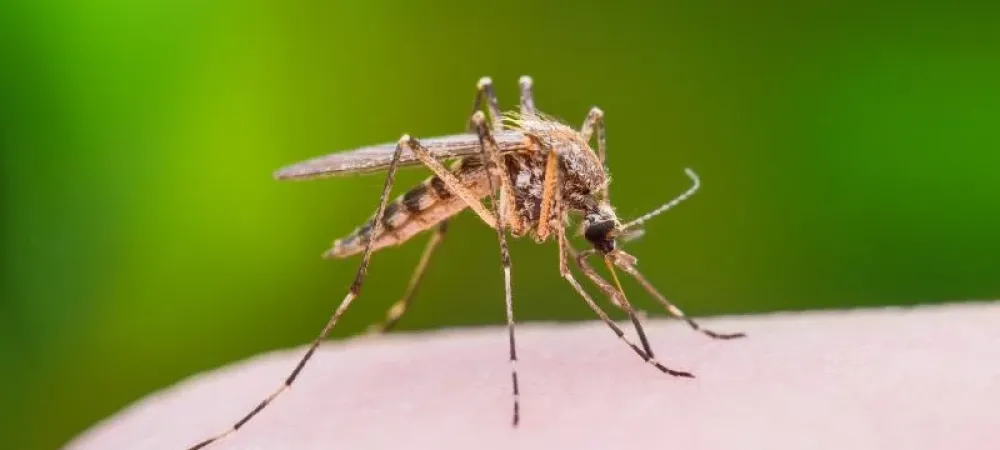5 Signs of a Mosquito Infestation

Which animal do you think kills the most humans every year? Surprisingly, the answer is not something large like tigers or elephants. It’s actually mosquitoes. Mosquitoes have been a plague on humanity for thousands of years, and only recently have we figured out how to treat or prevent most of the diseases they carry. Mosquitoes can be a serious problem because mosquitoes can get into people’s homes and cause an infestation. How can you tell if you have a mosquito infestation, though? Read on to find out!
1. Standing Water
It’s nearly impossible to n have standing water on your property without having mosquitoes. A little-known fact about mosquitoes is that they’re entirely aquatic until they reach the adult stage. Female mosquitoes flock to stagnant pools of water, where they lay their eggs which can grow into adults within 10 days. Adult female mosquitoes mate, and use blood as nutrition for their eggs, so if there is standing water around your home, mosquitoes will use you and your family as a food source.
Getting rid of standing water in and around your home will help keep mosquitoes away from your direct vicinity. You can’t change the fact that your town has a lake or ponds where mosquitoes breed, but removing standing water from your yard helps diminish their populations.
2. Humidity
If you live somewhere warm and damp, then you’re at a greater risk for a mosquito infestation. Much like reptiles, mosquitoes are cold-blooded, so they don’t function well in colder environments. We’ve already mentioned that they have to lay their eggs in standing water, so humid areas suit them well. Their need for warm weather and access to water is why you so often hear about mosquitoes, and the diseases they carry, in tropical areas. Using a dehumidifier is an easy way to remove moisture from the air in your home, making it less likely that mosquitoes will travel inside your home.
3. Bites
One of the more obvious signs of a mosquito infestation is unexplained itchy bites. When mosquitoes bite and feed on our blood, they also release a blood thinner to make it flow more freely. However, the itch is not triggered by the blood thinner, but by a group of proteins that are also released. Our bodies recognize these proteins as foreign contaminants and send histamines to deal with them. It’s the histamines that cause the itch. You’ll need to make sure mosquitoes are the culprit, because getting rid of standing water or using a dehumidifier may not help with spiders, fleas, or bedbugs. You can usually tell bedbug and flea bites because they tend to occur in clusters. Bedbug bites occur in groups of three or more and are usually worse in the morning, but feel better as the day goes on. Flea bites also happen in groups and are often arranged in a line. Flea bites also tend to be lower on the body because fleas can’t fly. Unless you lay down in the grass, you’ll almost always get them on your legs. Mosquito bites, however, don’t appear in clusters, nor are they confined to one area of our bodies. They’ll usually occur wherever there’s exposed skin. Mosquito bites typically cause raised, red bumps ranging in size from a dime to a quarter and can last several days.
4. You See Mosquitoes
Another clear sign of a mosquito infestation is that you start seeing mosquitoes in your home. One or two mosquitoes every now and then doesn’t mean you have an infestation. If they appear frequently, however, you may have a mosquito problem. Mosquitoes are relatively small, and usually do not cause pain when they bite. They are sometimes confused with a larger species called a Mosquito Hawk, or Cranefly, which actually feeds on mosquitoes. Mosquitoes can be found in shady areas during the daytime, but it is more common for mosquitoes to be active at night. For every mosquito you see during the day, many more will come out at night.
5. A Buzzing Noise
If you’ve encountered mosquitoes before, you may have noticed that they make an annoying noise. If there’s a mosquito infestation in your home, this buzzing will be common, and perhaps even constant. If this noise occurs in conjunction with any of the other signs, you should start looking into exterminators. Disease-carrying mosquitoes are not as common in the US as in other parts of the world, but it’s better not to take the risk.
Treating a Mosquito Infestation
We’ve talked about a few of the sign and ways to diminish mosquitoes in the paragraphs above, but we couldn’t cover all of them. If you want to do more research on your own, you can learn more about our mosquito control services and see how we can help you.
We’d also recommend that you consult an exterminator, like us. Our exterminators have been trained to understand pests and how they operate, so we’ll be able to answer any questions you may have and fix your infestation problem. Feel free to contact us.